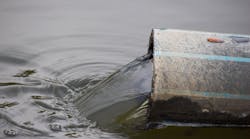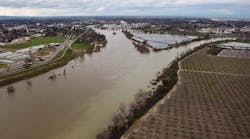• EPA extends comment period; Additional public hearings are slated across the state in April
WASHINGTON, March 4, 2010 -- In an effort to ensure that Florida residents voices are heard, the U.S Environmental Protection Agency (EPA) is extending the comment period for the agency's proposed water quality standards. The comment period is being extended for 30 days and will now end on April 28. The agency will also hold three more public hearings in Florida to obtain additional input and comments on the proposed rulemaking. Planning for the additional hearings is underway and the hearings are targeted for mid-April in several cities across the state.
These proposed water standards will protect people's health, aquatic life and the long-term recreational uses of Florida's waters, a critical part of the state's economy. EPA Administrator Lisa P. Jackson announced the extension today in a meeting with senior EPA officials and members of the Florida's Congressional delegation. In February, EPA held seven public hearing sessions on the proposed standards in Tallahassee, Orlando and Fort Lauderdale, Fla.
"Clean and safe waters are central to people's health and Florida's economic growth, which is why EPA is proposing this rule to curb the impacts of costly nutrient pollution," said Pete Silva, assistant administrator for EPA's Office of Water. "We are extending the comment period and having additional hearings to ensure there is more time for Floridians to offer their comments and ideas."
In 2009, EPA entered into a consent decree, approved by the U.S. District Court for the Northern District of Florida, with the Florida Wildlife Federation to propose limits to pollution. The proposed action, released for public comment and based heavily on state data and science developed in collaboration with the state, would set a series of numeric limits on the amount of phosphorus and nitrogen, also known as "nutrients," that would be allowed in Florida's lakes, rivers, streams, springs and canals. The proposed standards aim to make it easier and quicker to address the economic, environmental and health issues of nutrient pollution.
Nutrient pollution can damage drinking water sources; increase exposure to harmful algal blooms, which are made of toxic microbes that can cause damage to the nervous system or even death; and form byproducts in drinking water from disinfection chemicals, some of which have been linked with serious human illnesses like bladder cancer. Phosphorus and nitrogen pollution come from stormwater runoff, municipal wastewater treatment, fertilization of crops and livestock manure. Nitrogen also forms from the burning of fossil fuels, like gasoline. Nutrient problems can happen in local ambient water or much further downstream, leading to degraded lakes, reservoirs, and estuaries, and to hypoxic "dead" zones where aquatic life can no longer survive. High amounts of nitrogen and phosphorus in surface water result in harmful algal blooms, dead fish, reduced mating grounds and nursery habitats for fish.
The proposed action also introduces and seeks comment on a new adaptive management regulatory process for setting standards in a manner that drives water quality improvements in already impaired waters. The proposed new regulatory provision, called restoration standards, would be specific to nutrients in the state of Florida.
More on the proposed rule and public hearings: http://www.epa.gov/waterscience/standards/rules/florida/
###


